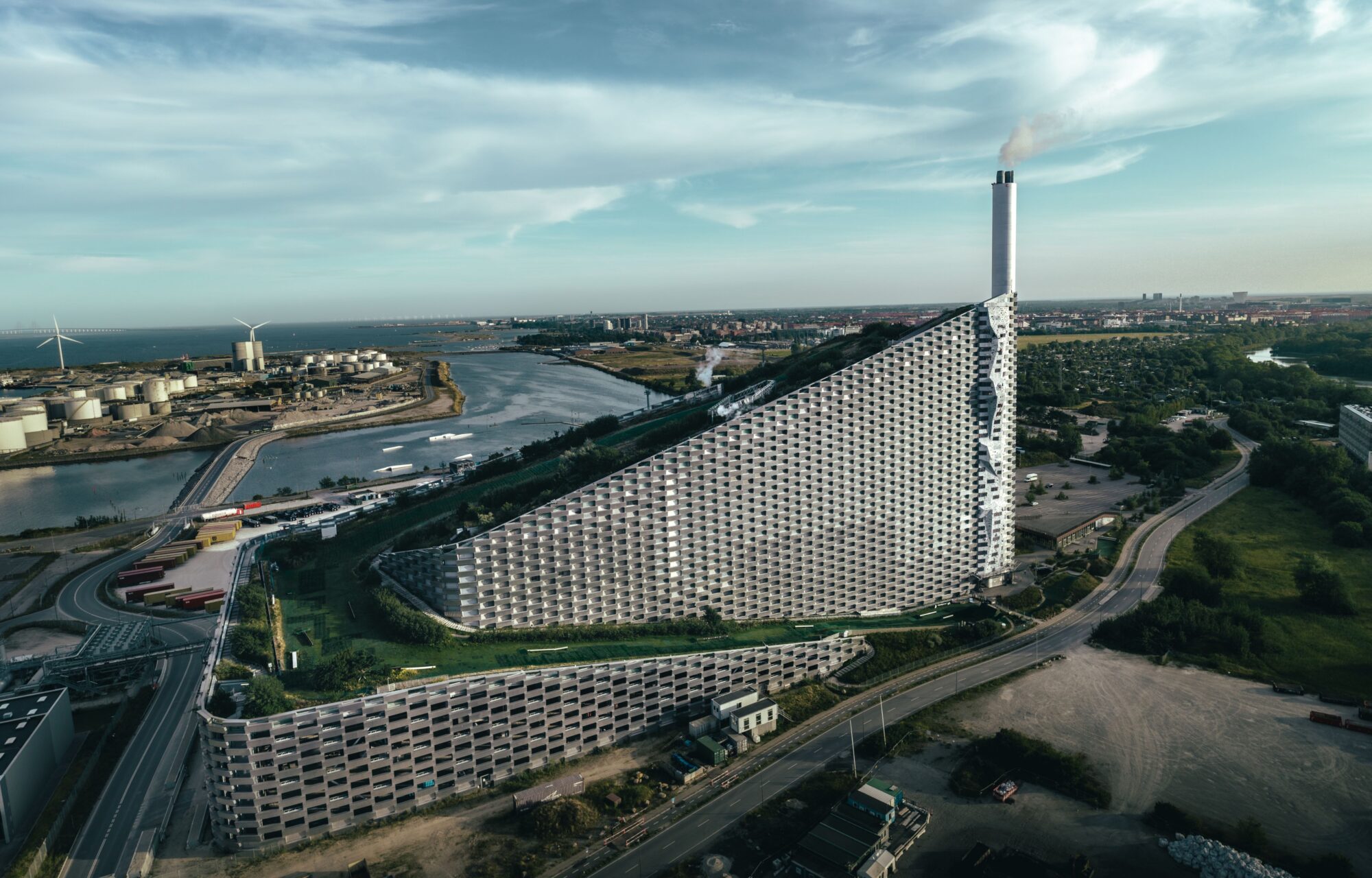A consortium of companies has joined forces to demonstrate the feasibility of the entire CO₂ removal value chain, from carbon capture and liquefaction to transport and finally end use in concrete manufacturing. As part of this initiative, Carbonaide will mineralize a total of 90 tonnes of CO₂ by the end of 2024.
Carbonaide, a startup that enables the manufacturing of carbon-negative concrete, plays a critical role in the joint initiative: the company will mineralize captured CO₂ and store it permanently in concrete. The CO₂ is supplied by ARC, a Danish waste-to-energy plant capable of capturing up to 4 tonnes of CO₂ daily directly from flue gas.
The CO₂ removals are sold to Swiss outdoor clothing and climbing gear brand Mammut via a carbon removal marketplace operated by Danish startup Klimate.co, and Bofort, a cryogenic ISO tank leasing company from Belgium is responsible for safely facilitating the liquefied CO₂ supply chain before Carbonaide mineralize it in Hollola, Finland. Professional rock climber Adam Ondra features as the face of the initiative.
At the center of this proof-of-concept demonstration, uniting all parties, is the Danish tech start-up Klimate.co, which operates the marketplace on which the CO₂ mineralized by Carbonaide is sold to Mammut. Mammut is committed to halving its emissions by 2030 and reaching net zero by 2050. The company is also exploring innovative ways to remove CO₂ from the atmosphere, which led to this project demonstrating the concept of permanent carbon removal via mineralization in concrete.
“This proof-of-concept demonstration fosters much needed collaboration in the nascent field of technological carbon removals and showcases the complexities most projects in this field face. Permanent carbon removal on an industrial scale requires joint efforts from several industries. By working together, we can demonstrate the potential for industry decarbonisation via permanent carbon removal in concrete on an industrial scale. I thank our partner Bofort for initiating the contact between Carbonaide and ARC,”
said Tapio Vehmas, CEO of Carbonaide.
The concrete industry is responsible for 8% of global CO₂ emissions. As legislation around construction material emissions tightens and construction companies strive for carbon neutrality, industrially feasible technologies to reduce the CO₂ emissions of concrete are sorely needed. With Carbonaide’s technology, approximately 100 kg of CO₂ can be mineralized and permanently stored per m3 of concrete, leading to a 20–50% reduction in cement volumes and associated emissions.
“We are pleased to contribute to this innovative project where CO₂ from the flue gas at ARC’s waste-to-energy plant, Amager Bakke, is captured and used in concrete. This is one of many possible future industrial uses of CO₂ that can contribute to decarbonization,”
says Nils Thor Rosted, Head of Communications at ARC.
International expansion and local partnerships
The first factory in Finland utilizing Carbonaide technology has been operational from August 2023, producing carbonated products on a commercial scale. The current technology can be applied to manufacture non-reinforced precast concrete products, such as pavements and intermediate walls. Carbonaide is working toward expanding the technology into precast elements in the future. The company will seek certification under one of the leading carbon market standards to monetize the permanent removals on the CDR market.
Having reached the capability to deliver its technology to concrete precast companies in various markets, the company is looking to establish partnerships for long-term supply of biogenic CO₂ from, for example, local biogas plants. Ultimately, Carbonaide strives to establish CO₂ mineralization in concrete as an exportable European technology concept.
“The demonstration by Carbonaide and its partners showcases the commercial value of carbon dioxide utilization and storage on an industrial scale. It’s great to follow the deployment of the technology after visiting the pilot factory of Rakennusbetoni- ja Elementti Oy in Hollola last January. Advancing domestic carbon capture efforts gives technology players like Carbonaide extra momentum in boosting Finland’s technology exports and increasing its carbon handprint, while also supporting Finland’s clean transition goals. The rapid progression of the technology from research to commercial activity also reflects the growing demand for low-carbon concrete products and Finnish innovations,”
commented Kai Mykkänen, Finland’s Minister of Climate and the Environment.

Amager Bakke photo by Petr Chodura (Mammut).
Media contacts:
Tapio Vehmas, CEO
Carbonaide Oy
Tel. +358 40 591 1589
tapio.vehmas@carbonaide.com

